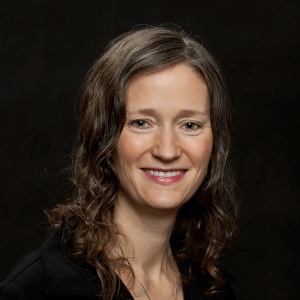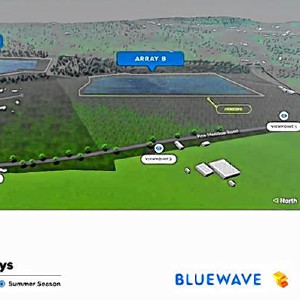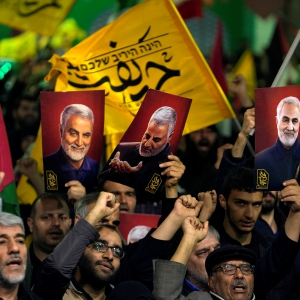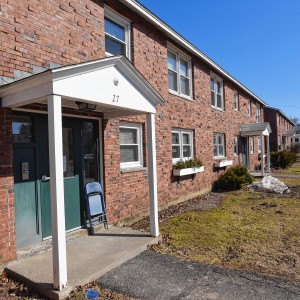Connecting the Dots: Group action is a time-honored tradition
| Published: 01-27-2023 5:24 PM |
Our embattled planet’s capacity to sustain humankind’s “lifestyle” is about to run out.
Global warming has increased the number of extreme weather events around the world by 400% since the 1980s. Countries really do know how to stop these events: just stop burning fossil fuels and shift to renewable energy and reduce the carbon intensity of agriculture.
But this is not happening fast enough to save humankind from environmental catastrophe. Why?
Clearly, a major factor is the influence that the fossil fuel industry, electric utilities and others with a vested interest in fossil fuels have over policymakers. Joe Manchin is an obvious example.
In his new book, “The Climate Crisis,” Adam Aron says “There’s another reason for this inaction that everyone has the ability to change.” That reason he calls ”response skepticism — the public does not believe in its own political power enough or use it.”
Many people see that “big money” from corporations and individuals influences politicians and also believe that these same politicians don’t listen to the public.
We can be distracted by campaigns calling for us to focus on individual recycling. Or why it is fruitless to push the U.S. to lead the way in the reduction of CO2 when other countries are not. Or there’s no need “to rush because future technology will save humanity.”
Studies have shown that participating in local climate actions requires a collaboration of values and attitudes, including believing in one’s own ability, and the group’s capacity, to get things done. These beliefs can be developed through practice in organizing together such as the Traprock Peace Center, Climate Action Now Western Massachusetts and Greening Greenfield now do.
Article continues after...
Yesterday's Most Read Articles
 Police report details grisly crime scene in Greenfield
Police report details grisly crime scene in Greenfield
 On The Ridge with Joe Judd: What time should you turkey hunt?
On The Ridge with Joe Judd: What time should you turkey hunt?
 New buyer of Bernardston’s Windmill Motel looks to resell it, attorney says
New buyer of Bernardston’s Windmill Motel looks to resell it, attorney says
 Greenfield man arrested in New York on murder charge
Greenfield man arrested in New York on murder charge
 Man allegedly steals $100K worth of items from Northampton, South Deerfield businesses
Man allegedly steals $100K worth of items from Northampton, South Deerfield businesses
 Joannah Whitney of Greenfield wins 33rd annual Poet’s Seat Poetry Contest
Joannah Whitney of Greenfield wins 33rd annual Poet’s Seat Poetry Contest
We have to understand and believe that, while human-caused climate change is a global problem, taking local action can be effective beyond community and state borders.
First, much of the policy change that can affect climate change happens at the state and local level. For example, replacing fossil fuel power plants with renewable energy technology is mostly under the control of state government. We can (and do) pay attention to what the Massachusetts Department of Public Utilities (DPU) is doing. Its major duties include the regulation of public utility companies that distribute electric power, natural gas and water to the citizens of Massachusetts. Letting our governor know that there are many climate activists (and voters!) in western Massachusetts can be very effective as reported in yesterday’s Recorder. “People are angry, genuinely angry and frustrated,” state Rep Susannah Whipps said, about “corporate greed” in higher utility rate hikes.
Second, state and local “wins” can become contagious. In 1997, a handful of advocates on Cape Cod won their battle for a local policy called community choice aggregation (CCA), a policy concept where a municipality essentially takes over energy procurement from the utility monopoly, which continues to deliver energy and charges the CCA for delivery.
By 2022, this policy, known as “3 choice aggregation” was adopted by over 1,800 local governments across six states, affecting millions of people. Local action also can create learning curves for technology — pushing for more solar and wind turbines.
Third, local action can trigger national policy, spread to other countries and ultimately trigger global agreements. Environmental regulation in the 1970s is a great example. It started with public alarm about cities clouded in smog, rivers catching fire from industrial waste and beaches fouled by oil spills. Citizens organized thousands of protest actions, and municipalities responded by implementing environmental enforcement.
The lawsuits that followed were very costly for corporate interests, which then supported federal intervention as a way to have predictable rules. This pushed President Richard Nixon to create the Environmental Protection Agency with its far-reaching legislation in response to state pressure. (History also reveals that he privately noted that had he not taken this “liberal” step, the Democratic Congress would have forced more liberal environmental legislation on him.)
Last year, Congress passed the Inflation Reduction Act, authorizing nearly $400 billion of climate-related spending over 10 years. I believe the youth-led Sunrise Movement is in large part responsible for its success. These young people relentlessly organized demonstrations since 2019 and pressured Democrats in Congress. While the result fell short of the group’s vision for a Green New Deal, it has gone further than any previous climate-related legislation.
Group action targeted at state and local decision-makers is a time-honored tradition. I believe it is critical in today’s political wasteland if we want to mitigate our climate crisis.
Greenfield resident John Bos attempts to connect the dots between our worsening climate crisis and other human foibles in this column every other Saturday in the Recorder. Rational questions and comments are invited at john01370@gmail.com.
]]>

 My Turn: A moral justification for civil disobedience to abortion bans
My Turn: A moral justification for civil disobedience to abortion bans My Turn: Industrial solar installations are overwhelming Northfield neighborhood
My Turn: Industrial solar installations are overwhelming Northfield neighborhood Guest columnist Rudy Perkins: Dangerous resolution on Iran
Guest columnist Rudy Perkins: Dangerous resolution on Iran Guest columnists Ellen Attaliades and Lynn Ireland: Housing crisis is fueling the human services crisis
Guest columnists Ellen Attaliades and Lynn Ireland: Housing crisis is fueling the human services crisis
